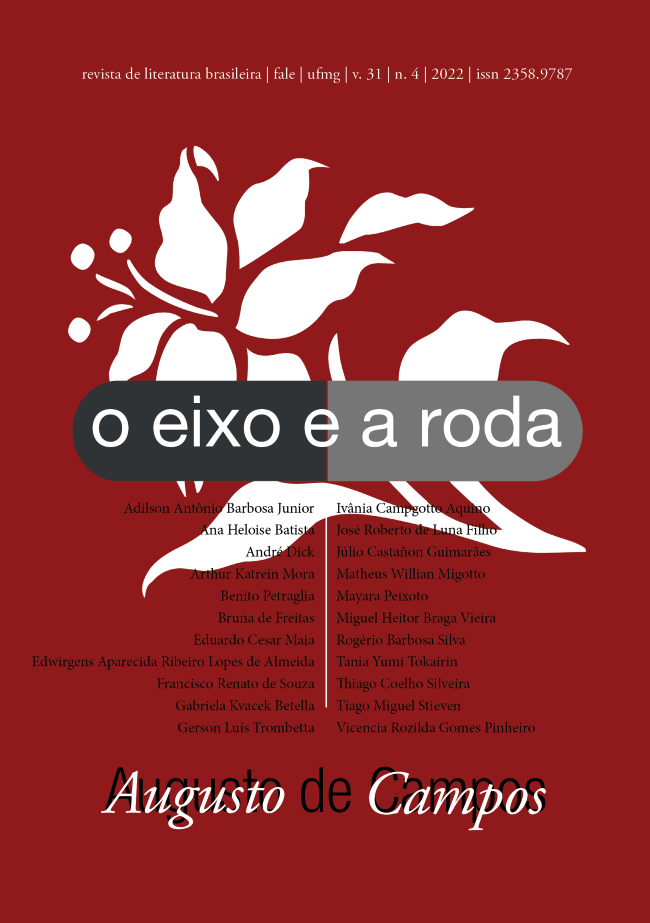Sofrimento e silêncio no piauí oitocentista
a representação feminina em Vaqueiro e visconde, de José Expedito Rêgo
DOI:
https://doi.org/10.17851/2358-9787.31.4.228-244Palavras-chave:
Vaqueiro e visconde, Piauí, gênero, mulherResumo
O campo que circunda o gênero é um liame tênue entre o político e social, pois estas instâncias refletem a conjuntura que nos cerca sobre as questões de como tratamos e como somos tratados nas discussões sobre o masculino e o feminino, bem como isso é refletido nas produções literárias que caminham sobre esse terreno. Desta maneira, este trabalho objetiva analisar as representações do feminino na obra Vaqueiro e visconde (2009), de José Expedito Rêgo. Enquanto metodologia, utilizam-se os pressupostos da pesquisa qualitativa de cunho bibliográfico, tratando o corpus do texto literário como elemento primordial para a investigação sobre as personagens. No tocante ao aporte teórico, valemo-nos dos diálogos empreendidos por Bourdieu (2017); Espinheira (1984); Schawantes (2006); Zanello (2018) e Zinani (2006), bem como outros nomes que abordam as teorias e críticas literárias no âmbito dos estudos de gênero e seus desdobramentos com o feminismo. Percebe-se, assim, que o processo de inferiorização e subalternidade imposto ao ser feminino permeia toda a obra, e encontra seu ápice na personagem Josefa, que reflete o regime patriarcal e misógino estruturador do Piauí oitocentista.
Referências
BARROS, E. B. de. Mímesis em Malhadinha, de José Expedito Rêgo: representação irônica de um sistema social em decadência. 2015. Dissertação (Mestrado em Letras) – Universidade Estadual do Piauí, Teresina, 2015.
BENSUSAN, H. Observações sobre a libido colonizada: tentando pensar ao largo do patriarcado. Estudos feministas, Florianópolis, v. 12, p. 131- 176, 2004. Disponível em: https://www.scielo.br/j/ref/a/GzHWy5Cxc6FcPm3kxyNCjCb/?format=pdf〈=pt. Acesso em: 17 mar. 2023.
BOURDIEU, P. A Dominação Masculina. 4. ed. Rio de Janeiro: Bertrand Brasil, 2017.
CASTELO BRANCO, P. V. O visconde da Parnaíba e a construção da ordem imperial na província do Piauí. CLIO: Revista de Pesquisa Histórica, Recife, v. 38, p.205-230, jul./dez. 2020. Disponível em: https://150.161.6.100/revistas/index.php/revistaclio/article/view/245738. Acesso em: 17 mar. 2023.
ESPINHEIRA, G. Divergência e prostituição: uma análise sociológica da comunidade prostitucional do Maciel. Salvador: Fundação Cultural do estado da Bahia, 1984.
FALCI, M. K. Mulheres do Sertão Nordestino. In: PRIORE, M. História das Mulheres no Brasil. São Paulo: Contexto, 1997. p. 241-278.
FERREIRA, N. B. Estudos culturais: um método de abordagem para a análise de objetos literários. In: NASCIMENTO, C. M. B.; PINHEIRO, E. V.; LIRA, M. R. S.; SERRÃO, T. S. (org.). Metodologia da Pesquisa em Estudos Literários. Manaus: EDUA, 2018. p. 183-198.
PERROT, M. Minha história das mulheres. 2. ed. São Paulo: Contexto, 2007.
RÊGO, J. E. Vaqueiro e Visconde. 4. ed. Teresina: APL; FUNDAC; DETRAN, 2009.
SCHAWANTES, C. Dilemas da Representação Feminina. OPSIS, Catalão, v. 6, p. 7-19, 2006.
SERRÃO, T. S. Identidade e identificação nos textos literários. In: NASCIMENTO, C. M. B.; PINHEIRO, E. V.; LIRA, M. R. S.; SERRÃO, T. S. (org.). Metodologia da Pesquisa em Estudos Literários. Manaus: EDUA, 2018. p. 231-240.
SOUSA NETO, M de. Entre vaqueiros e fidalgos: sociedade, política e educação no Piauí (1820-1830). Teresina: Fundação Cultural Monsenhor Chaves, 2013.
TEIXEIRA, N. C. R. B. Entre o ser e o estar: o feminino no discurso literário. Guairacá: Revista de Filosofia, Guarapuava, n. 25, p. 81-102, 2009. Disponível em: https://revistas.unicentro.br/index.php/guaiaraca/article/view/1125/1082. Acesso em: 08 jan. 2022.
ZANELLO, V. Saúde Mental, gênero e dispositivos. Cultura e processos de subjetivação. Curitiba: Appris, 2018.
ZINANI, C. J. Literatura e Gênero: A construção da identidade feminina. Caxias do Sul, RS: Educs, 2006.










